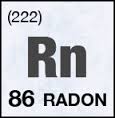 In the last few days dozens of articles have suggested a causal link between fracking and an increase in radon levels in homes in Pennsylvania. Headlines range from conservative as USA Today’s article – “Study suggests fracking could release radon from ground” and CBS News with a question “Is fracking causing a spike in radon levels?” to inflammatory headlines from liberal activists stating that a link between fracking and rising levels of radon gas in homes near fracking sites has been established based on a study published yesterday in Environmental Health Perspectives.
In the last few days dozens of articles have suggested a causal link between fracking and an increase in radon levels in homes in Pennsylvania. Headlines range from conservative as USA Today’s article – “Study suggests fracking could release radon from ground” and CBS News with a question “Is fracking causing a spike in radon levels?” to inflammatory headlines from liberal activists stating that a link between fracking and rising levels of radon gas in homes near fracking sites has been established based on a study published yesterday in Environmental Health Perspectives.
Radon is a chemical element with symbol Rn and atomic number 86. It is a radioactive, colorless, odorless, tasteless[2]noble gas, occurring naturally as an indirect decay product of uranium or thorium.
In fact no such link was found by the study. The authors say they focused on Pennsylvania because it has one of highest residential radon levels in the country, and because the state has a huge, detailed database of home radon measures. They found that levels in some sites had risen since 2004, which is the date they claim fracking started to increase, however there is no controlled analysis of claim. The authors state the study is a preliminary “first look” into a “possible connection” between fracking and radon. (more…)
 This controversial decision by Governor Cuomo has even fueled secession talk by the southern part of the state that has sat idly by and watched neighbor Pennsylvania enjoy the huge economic benefits of shale development (as such, states like Texas and Oklahoma are banning fracking bans!). Fracking technology, after all, is a proven commodity that has been safely deployed for over 60 years in over a million wells – across the country to great success.
This controversial decision by Governor Cuomo has even fueled secession talk by the southern part of the state that has sat idly by and watched neighbor Pennsylvania enjoy the huge economic benefits of shale development (as such, states like Texas and Oklahoma are banning fracking bans!). Fracking technology, after all, is a proven commodity that has been safely deployed for over 60 years in over a million wells – across the country to great success.



 In the last few days dozens of articles have suggested a causal link between fracking and an increase in radon levels in homes in Pennsylvania. Headlines range from conservative as USA Today’s article – “Study suggests fracking could release radon from ground” and CBS News with a question “Is fracking causing a spike in radon levels?” to inflammatory headlines from liberal activists stating that a link between fracking and rising levels of radon gas in homes near fracking sites has been established based on a study published yesterday in Environmental Health Perspectives.
In the last few days dozens of articles have suggested a causal link between fracking and an increase in radon levels in homes in Pennsylvania. Headlines range from conservative as USA Today’s article – “Study suggests fracking could release radon from ground” and CBS News with a question “Is fracking causing a spike in radon levels?” to inflammatory headlines from liberal activists stating that a link between fracking and rising levels of radon gas in homes near fracking sites has been established based on a study published yesterday in Environmental Health Perspectives.
 Previous studies using very small sample sets reported that there may be higher concentrations of methane dissolved in groundwater near wells using hydraulic fracking methods in northeastern Pennsylvania.1,2
Previous studies using very small sample sets reported that there may be higher concentrations of methane dissolved in groundwater near wells using hydraulic fracking methods in northeastern Pennsylvania.1,2